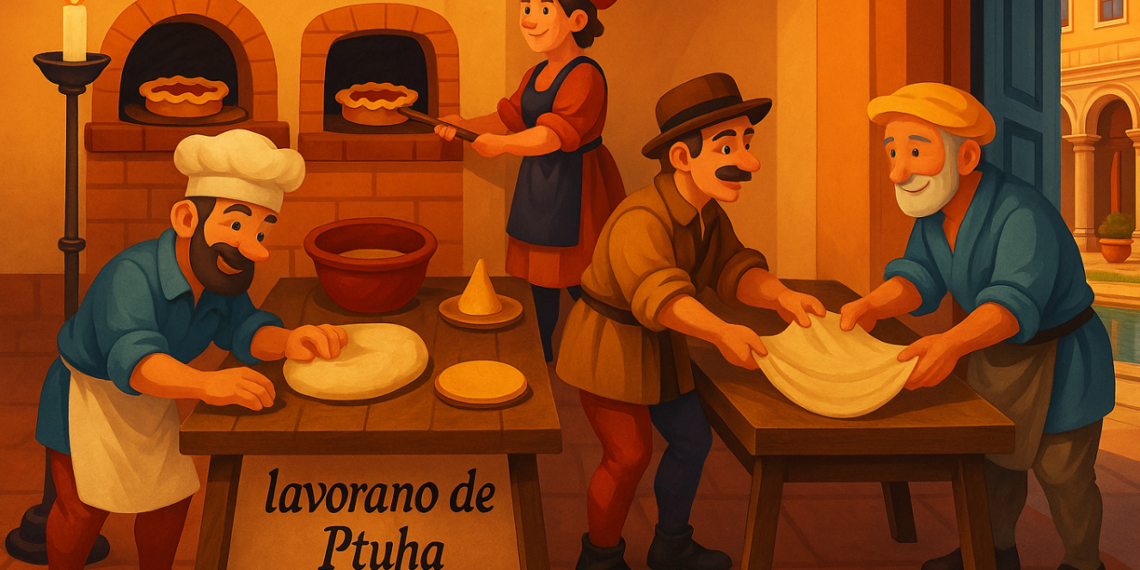How Bartolomeo Scappi Transformed Renaissance Cooking
Bartolomeo Scappi, the famed Renaissance chef, was more than just a cook in a noble court. He served as personal chef to several popes and compiled one of the earliest and most detailed cookbooks of the Renaissance. His work, Opera dell’arte del cucinare (1570), remains a milestone in European food history.
From his use of global ingredients to innovative kitchen tools, Bartolomeo Scappi helped elevate Italian Renaissance cuisine into a refined art form. His influence reached well beyond the papal kitchens of Rome.
Bartolomeo Scappi and the Renaissance Court
Scappi was not merely a kitchen servant—he was a culinary strategist for the elite. Serving under Popes Pius IV and Pius V, he created feasts that balanced religious rules with indulgent flavors.
Because of his courtly role, Bartolomeo Scappi had access to imported spices, exotic ingredients, and the latest in cooking technologies. These resources allowed him to create dishes that symbolized power, wealth, and sophistication.
Opera: Bartolomeo Scappi’s Groundbreaking Cookbook
His magnum opus, Opera dell’arte del cucinare, included over 1,000 recipes, divided into six books. It wasn’t just a cookbook—it was an encyclopedia of Renaissance food philosophy. The book discussed:
- Seasonal eating
- Kitchen organization
- Cooking for the ill
- Table service and etiquette
- Detailed diagrams of Renaissance cooking tools
This made Opera an essential manual for professional cooks and court kitchens. It remains one of the earliest comprehensive cookbooks in Europe.
Bartolomeo Scappi’s Innovations in Cooking Technique
Bartolomeo Scappi’s culinary legacy includes refined techniques that were revolutionary for his time:
- Poaching in aromatic broths
- Layered baking and stuffing
- Using molds for presentation
- Temperature control with charcoal ovens
- Emphasis on texture and visual appeal
These techniques moved beyond mere sustenance. They brought Renaissance ideals of beauty, balance, and structure into the kitchen.
Global Ingredients in Renaissance Cuisine
Scappi’s recipes reflected the global shifts of the 16th century. Thanks to trade and colonial exploration, he introduced or adapted:
- Cinnamon and nutmeg from the Spice Islands
- Sugar from the Mediterranean and the New World
- Rice, almonds, and citrus from Arab and Moorish traditions
- Game and freshwater fish from Italy’s diverse ecosystems
This global palate shaped the very identity of Italian Renaissance cuisine.
Scappi’s Influence on Future Generations
Many chefs of the Baroque and Enlightenment eras cited Scappi as a reference. His emphasis on order, classification, and hospitality set the groundwork for later French culinary formalism.
In fact, his cookbook influenced culinary scholars and household kitchens well into the 17th century. The Renaissance chef shaped not just how food was made, but how it was understood.
Why Bartolomeo Scappi Still Matters
Studying Bartolomeo Scappi is not just about old recipes. It’s about understanding the role of cuisine in art, politics, and identity during the Renaissance.
His approach to food as a form of aesthetic and intellectual expression placed cooking among the liberal arts. Today, culinary historians still rely on Scappi’s writing to reconstruct historical diets and banquet culture.
The Enduring Genius of Bartolomeo Scappi
Bartolomeo Scappi was far more than a Renaissance cook. He was a visionary who documented and defined a turning point in European food history. His work fused tradition and innovation, creating a new model for professional cooking.
Through his writing and court service, he established a foundation that still informs modern gastronomy. Scappi’s culinary legacy is a testament to the Renaissance ideal: that food, too, can be high art.






